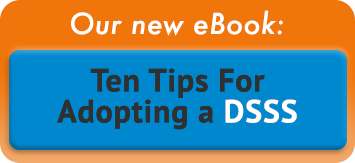- Privacy Policy
- Terms & Conditions
- Contact us
- ©Isabel Healthcare 2020
Artificial General Intelligence (AGI) and Healthcare Adaptation
 Artificial Intelligence (AI) is the intelligence which can be exhibited by machines or software, which perceives its environment and takes action to maximize its success, effectively mimicking intelligent behaviour. AI has been attracting growing attention in the last 5 years, with IBM Watson winning a game of Jeopardy in 2011, and more recently Google’s DeepMind winning a game of Go against the World Champion. Winning a game is one thing, but how can the powers of Artificial Intelligence be harnessed, turning pioneering ideas into reality? At Isabel we know that replacing medical professionals with machines is not the solution, and that an option where physicians can work with AI is the best way forward. How can AI be used in the everyday healthcare environment without isolating itself from patient care, or becoming more important than the physician to patient interaction and consultation?
Artificial Intelligence (AI) is the intelligence which can be exhibited by machines or software, which perceives its environment and takes action to maximize its success, effectively mimicking intelligent behaviour. AI has been attracting growing attention in the last 5 years, with IBM Watson winning a game of Jeopardy in 2011, and more recently Google’s DeepMind winning a game of Go against the World Champion. Winning a game is one thing, but how can the powers of Artificial Intelligence be harnessed, turning pioneering ideas into reality? At Isabel we know that replacing medical professionals with machines is not the solution, and that an option where physicians can work with AI is the best way forward. How can AI be used in the everyday healthcare environment without isolating itself from patient care, or becoming more important than the physician to patient interaction and consultation?
Can AI adapt and learn like medical professionals?
Most AI programs are built on “narrow” training algorithms which are pre-programmed to follow a set of rules and master a particular task, but they cannot adapt or learn from their experience. Although in many areas of AI, there are efforts to create AI that are able to build upon past experiences, there really is no replacement for human reasoning. Within healthcare if AI is to be used it has to ensure it works within a part of the team, alongside trained minds, and ultimately ‘do no harm’. Robert Wachter, M.D. in his book, The Digital Doctor: Hope, Hype and Harm at the Dawn of Medicine’s Computer Age, describes many instances of good AI systems used in healthcare. One example of this is in the field of preventing medical errors; programs like Isabel are able to minimise misdiagnosis with increasing accuracy. However, he mentions that there are also a number of poorly designed systems which have led to incorrect prescribing of medications, many of which weren’t picked up by humans until after the medication was administered, and then had to be reversed urgently to prevent physical harm.
Artificial General Intelligence (AGI) and Isabel
Isabel Healthcare has been working within the field of healthcare decision support for the past 15 years and has developed a successful clinical decision support system and patient symptom checker based on natural language algorithms, with 96% accuracy of finding the right diagnosis. Isabel has all the concepts required to be considered as a step towards ‘Artificial General Intelligence (AGI)’ which is a broader form of AI. If AI is the ability to perform set tasks in a specific order, AGI is the ability to know what tasks need doing, which of those tasks is the most important, and perform them in that order.
AGI software has to be able to interact within the field it has been designed for, in this case a medical environment, and also detect and respond to a hazard, and has these core functionalities at the heart of its design:
- represent knowledge including common sense knowledge
- reason by using strategy, solve puzzles and make judgments under uncertainty
- plan
- learn
- ability to communicate in natural language
- ability to integrate all these skills to secure a common goal
Isabel’s algorithm
Isabel’s system works off a evolving medical knowledge base which interacts with a natural language program. The program has been adapted to capture the essence of how humans understand this medical knowledge when they read textbooks or medical articles. This algorithm has also been further adapted, depending on whether the user is medically trained and is using the professional Isabel version, or whether they are using the Isabel Symptom Checker as patients. Isabel does not use a rules based question and answer format which is utilised by most decision support programs and symptom checkers, as it can reason by returning a list of potential diseases based on the variety of symptoms entered even if all symptoms are not present in all diseases. Rules based systems, for example, have to rely on all symptoms being present to return a potential list of causes. Isabel’s system will look for patterns within the symptoms entered but not all of them have to be present in the differential diagnosis list returned to bring it up as a diagnosis. Likewise, there could be a “red herring” symptom amongst those entered, or it could be that the symptoms entered are caused by more than one disease, and so a differential will encompass these multiple diseases.
Isabel’s knowledge
Isabel constantly learns by new data it receives in the form of knowledge created in its database which is added by humans. As it is mimicking the human thought process, humans have to be involved to evaluate its input and output and ensure all the Isabel algorithms are functioning as they should be with the knowledge Isabel is being sent.
Isabel’s integration
All the various software components work together and can be easily integrated into electronic health records and patient portals to give ease of access to Isabel’s differential diagnosis list. This can be used for further discussions with healthcare providers as a patient, or could be used as a checklist to be produced during the patient/physician encounter so that as details of the physical exam and history are gathered they can be added to and can refine that list. Isabel’s don’t miss and red flagged diagnoses are also clearly indicated to ensure they are noted during the workup or to help guide the patient as to where they should seek treatment via the Where to now? triage function.
The field of Artificial General Intelligence within healthcare is extremely interesting and will grow exponentially over the next few years, as long as systems developed work symbiotically with health care professionals, and are developed to work as the human brain does, not instead of. We cannot do away with humans, they are needed to hone this technology and take it to its full potential.
Have you read our whitepaper on the integration of systems like Isabel into medical institutions?
Image attribution:

Mandy Tomlinson
Mandy has worked for Isabel Healthcare since 2000. Prior to this, she was a Senior Staff Nurse on the Pediatric Infectious disease ward and high dependency unit at one of London's top hospitals, St Mary’s in Paddington which is part of Imperial College Healthcare NHS Trust. Her experience in the healthcare industry for the past 28 years in both the UK and USA means she's a vital resource for our organization. Mandy currently lives and works in Scottsdale, Arizona.
Subscribe Here!
Recent Posts
Virtual Triage: Do more questions lead to better patient outcomes?
One of the common misconceptions related to virtual triage / symptom checker tools is that the more..Webinar: Using Virtual Triage To Transform Patient Access
Outdated contact centers are posing problems for today's health systems. As longer hold times..List Of Categories
- Differential Diagnosis Decision Support
- Differential diagnosis
- Symptom Checker
- Symptoms
- Medical Error
- Patient Disease Information
- Disease
- Diagnostic Decision Support
- Clinical Decision Support
- Isabel 1 Minute Read
- Diagnosis Error
- Diagnosis Skills Cases
- Healthcare Informatics
- Medical Education
- Patient Engagement
- Clinical Reasoning
- Evidence-based Medicine
- Symptom Triage
- Nurse Practitioner Education
- Nursing Decision Support
- Partnership
- Public Health
- COVID-19
- EHR
- Patient Empowerment
- Patient Safety
- rare disease

Start your FREE Trial today
Try the Isabel Pro DDx generator for 30-days - no payment card details required.




